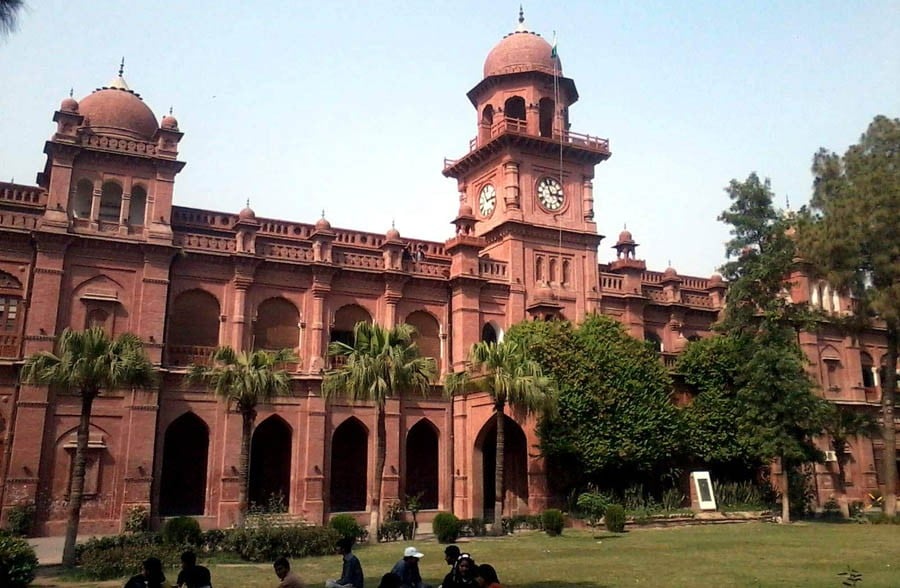
The most vital role of a university is to inculcate a sense of freedom in public

Universities exist in a peculiar context. Every university has its own traditions and set of values that it tends to instill in its students.
Essentially, a university in the subcontinent is a colonial project with explicit aim to create domesticated and docile subjects in the colonies. Therefore, a university in the postcolonial setting ought to be mindful of the colonial legacy that it carries. It must also bring about multifarious transitions.
Meaningful transition from colonial to postcolonial dispensation requires radical re-structuring in all social realms. The most fundamental postcolonial transition pertains to the transformation of an individual from the subservient position of a subject to the empowered and independent position of a citizen.
The foremost task of creating citizenry in the newly-founded postcolonial polity is carried out through a comprehensive system of education. The prime locus of that ‘performative’ act of cultivating freedom and liberty is the university. De-colonising the mind is imperative for re-inventing our own traditions and the system of knowledge embedded in our own socio-cultural realities.
A university is fundamentally important to re-imagine our collective self -- because it is from this site that the process of producing knowledge is unleashed. It is always through the production of knowledge in universities that self-representation (which is an act of actual freedom) emerges. Freedom in the real sense of the word comes when one learns to represent oneself.
Simply, freedom is acquired through producing our own knowledge in universities.
The knowledge and skill set produced in a university must simultaneously hold a competitive edge in the market, national as well as international. The importance of language as an instrument of academic articulation must be prioritised.
My own experience as an academic and writer provides enough evidence to assert that the biggest impediment in learning for our youth is the language barrier. Universities must take concrete remedial measures to address this problem. The effective learning as well as the production of knowledge remains a distant dream if proficiency in language is not ensured. That is the most crucial pre-condition for the development of critical thinking among the body of students. Besides, dissemination of knowledge and its production would also provide us with the most effective modus vivendi to construct a national identity underpinned by an indigenous epistemology. That should be the cardinal feature of a university, if anyone with insight is asked to administer it.
An individual, after acquiring the status of a citizen, needs instruction to cherish freedom as the most precious value and learn that freedom needs to be balanced with a sense of responsibility. Every citizen has obligations that s/he discharges before putting forward a demand for rights. Such a transformation is possible by making citizens aware of their rights and obligations. That is what human consciousness is about.
All said and done, the prime source of sensitising citizens about their rights and obligations is education -- and university its fountainhead. Freedom is absolutely vital for citizens to realise their latent potential. Thus, the collective potential of the populace is predicated on the extent of freedom granted by the state. To achieve this, emphasis must be laid on the theoretical aspects of both social sciences and pure sciences so they are connected to national realities.
But freedom may turn into anarchy if it is not punctuated with a sense of responsibility. Therefore, ‘disciplining of the individual’ by instilling a sense of responsibility to the state and society is extremely significant. The primary responsibility of the individual is to abide by the constitution, rules and regulations, and the general social norms consensually agreed upon by the general populace of the country. To cultivate such disciplined and responsible citizenry, universities can play a pivotal role.
Discipline instilled through higher education can be the most effective remedy for the existential threats and the social malaise that currently plague Pakistan. Universities can stem the social rot by generating a discourse on perilous effects of corruption and circumvention of rules. The need of the hour is to revise and re-imagine the courses and curriculum, particularly of social science disciplines, to find solutions to social ailments.
University must also produce graduates with an excellent set of marketable skills.
I will suggest that the undergraduate programmes must be strengthened with academic rigour, which seems starkly lacking in the university circuit at present. After closely observing the courses, curriculum, teaching methods, and techniques employed at top universities of the world, we should start reforming our universities.
I’d flag the National University of Singapore as a potential role model because the social context in which it was founded bears similarity to our social setting. Singapore was a tiny British colony, inhabited by various communities and ethnic factions, living in an uneasy calm. It was through quality education at the school level, and even more so through higher education, that inter-community harmony was forged. Education has been the source of social mobility in Singapore.
Despite their phenomenal numbers, MPhils and PhDs churned out by our universities lack intellectual flair and profundity. Now is the time to prefer quality to quantity.
The thorniest issue is the uneasy relationship between the administration and the teaching faculty. Professors and students are the most vital component of any university. Administrative staff is there merely to facilitate them.
I’m a strong advocate of an inter-disciplinary approach in teaching as well as in research. I wholeheartedly encourage scholars pursuing the route of scholarship. I also consider inter-university linkage to be extremely vital for academic development of the university.